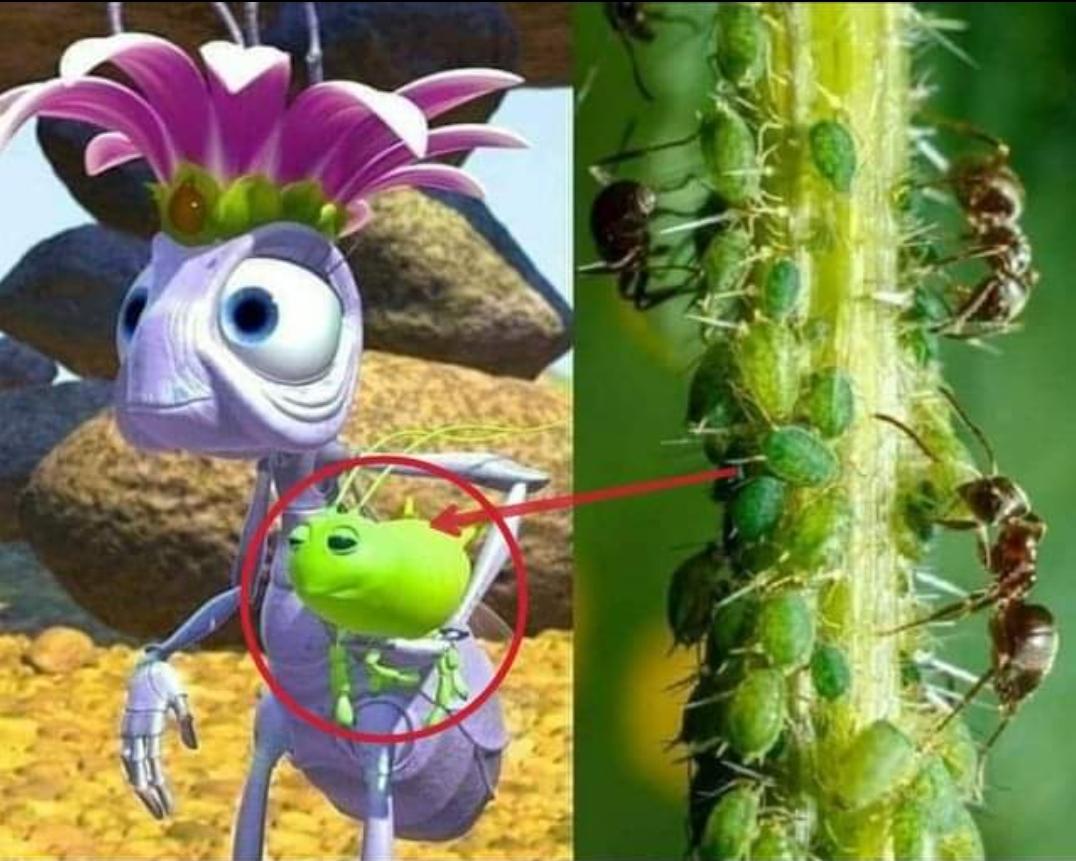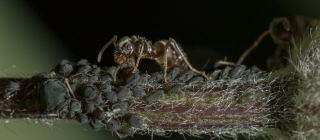@LillyPip isn’t it cool!
But if that was a TIL for you, just wait until you hear about how Ants have hospitals!
Ant hills can also have any infestations, as in a smaller species of ants (often thief ants) stealing the resources of the bigger ants.
@Tessellecta yes! And there are also ants who steal the children of other species of ant and enslave them.
Ants are so interesting.
This is so frickin’ cool. I’ve been learning the occasional interesting fact about ants for nigh on 30 years and here I am, still finding out cool things about these amazing little creatures.
@Transcendant I know, me too! I’ve been a fan of them ever since I was a kid but I still find out more stuff every now and again.
Dealing with this is so annoying. Not because it’s difficult to handle, though it is, but because I have to exterminate multiple Argentine ant colonies in rapid succession despite loving ants. Please just let me garden in peace, ants. :(
Ugh after having them come into my house once… I feel you. I love you, little ant bros, just not in my house!
Could you give them something that doesn’t harm the plants, that might lure them where they won’t bother you, and that won’t make the problem worse in a different way?
Maybe they’d like something you normally throw away in relatively small quantities that won’t attract something worse or poison anything?
e: disclaimer: IANAG. I am terrible with plants.
Argentine ants are altogether too numerous to meaningfully distract or redirect for long. If there’s a new ____ source, they’ll find a way to dive in and then produce a sister colony like 40 feet away. My options amount to either spreading poison, thereby killing a non-negligible sum of rabbits and neighborhood dogs, or killing the ants. I can always grow poisonous or undesirable veggies, but I can only take so many years of mustard, parsley, garlic, and tomatoes.
Reminds me of A Bug’s Life

Yeah, although we generally don’t drink what comes out of a cow’s ass.
Right, just its tits
Brings back ancient memories of the movie Ant Bully
little bastards move them everywhere. and farm a wide range of aphids and scale bugs.
Leaf cutter ant farm fungus like we farm veggies too.
deleted by creator
Kinda makes you rethink how we typically define ‘society’.
Like it’s far more fundamental than we think, and we very narrowly define it by too complex criteria. And we’re too invested in making sure that definition stays narrow enough that we can justify harming others.
(Sorry, I’d normally put that in a slightly more cheerful way, but I’m just so tired.)
Humans don’t just wake up one day and start farming fungi their whole lives and never stop or reproduce because something in their brain constantly tells them to. There’s some profound difference between ant “society” and human society.
I mean…
Most people will just do one specialised set of tasks for their whole lives. And reproduction definitely has strong physiological drives, there is a reason for phrases such as “thinking with his dick”.
An ant society is in fact very profound in many ways, they are eusocial, which means that any single individual truly works for the good of everyone and is willing to give up their lives without hesitation to protect the colony. Such level of cooperation is probably unfathomable in humans.
Yes, but humans will almost never actually focus 100% on one task. Almost everyone needs some hobby/creative expression to keep up their mental health. Humans do these tasks to be able to survive, not because they can’t think of anything else. The complexity of human society is unrivalled by any other social species we know of.
Each ant (in the more modern species at least) works for the ability of the queen(s) to reproduce. This is governed by instinct, no ant will sit down and think about its contribution to ant society. This also makes a colony less of a society and more like an organism. The ants are acting like cells of a body, working only towards the goal of survival and reproduction of the whole while never achieving the latter for themselves.
A human society on the other hand is the interplay of social organisms that choose to cooperate with certain goals in mind and a certain degree of interdependence. The individuals will sometimes sacrifice themselves for society but most will keep their own reproduction (= family) as their main priority. There are of course a lot of parallels and similarities , however the human capacity for individual agency and choice of cooperation is the difference that makes human society so unique.
This is baseless conjecture, not fact.
Youre misunderstanding biology’s decision to not impose cognitive assumptions where they cant be proven for a lack of cognition at all.
Bees, a close (relatively) relative of the ant are known to not only play, but also attempt to sneakily reproduce and hide their offspring among the queens eggs. The colony, in turn, murders any bees caught doing so. Clearly more than the simple robotic instinct you wish to imply, and entirely possible for ants to also be capable of. Its just yet to be observed, recorded, and published.
Do not mistake an inability to test and confirm for a lack of capacity.








